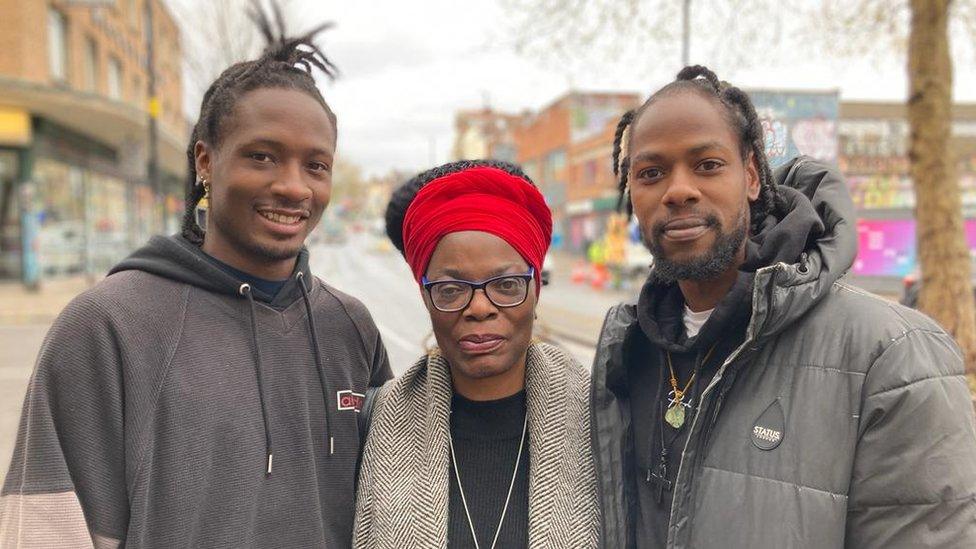Hidden Bristol stories told through virtual reality tour
- Published
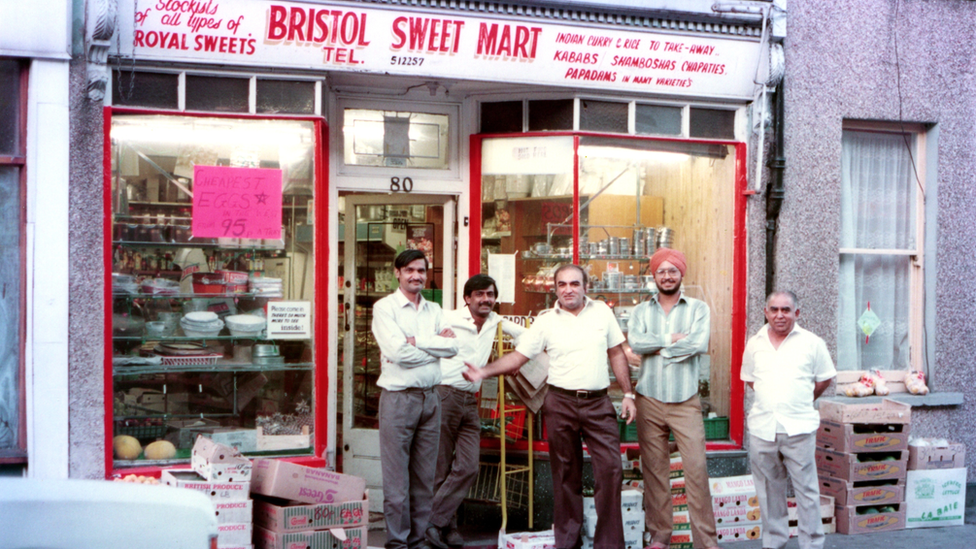
The history of Bristol Sweet Mart is included in the trail
An immersive city tour using virtual and augmented reality is sharing the histories of marginalised communities.
Bristol Story Trails captures 23 stories from local businesses across the city in areas including Knowle, Southmead and Kingswood.
A digital story map and story trail created by two Bristol creatives, can be followed on a map.
Marcus Smith, designer of the digital map said he wanted to encourage people to see the city in a different way.
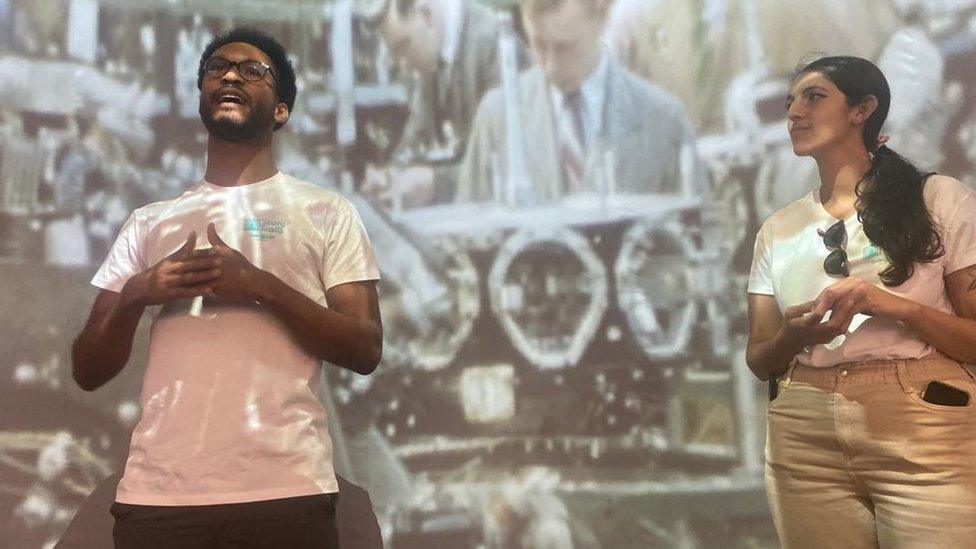
Marcus Smith (pictured left) helped to design the immersive map
People will also be able to use augmented reality on their phones if they want to take part.
"I wanted to reveal the independent and do-it-yourself mindset of people in Bristol," Mr Smith said.
"I also wanted to highlight the emotional attachment we have to places, as well as allowing people to see Bristol differently."
Amongst the stories captured is Anthonell Peccoo's, centring on the barbershop he set up - Second Combing in Stokes Croft.
His future in the UK had become uncertain with news he could face deportation before a petition and mural was created for him by the community in Stokes Croft.
A selection of stories related to the Windrush generation are also featured.
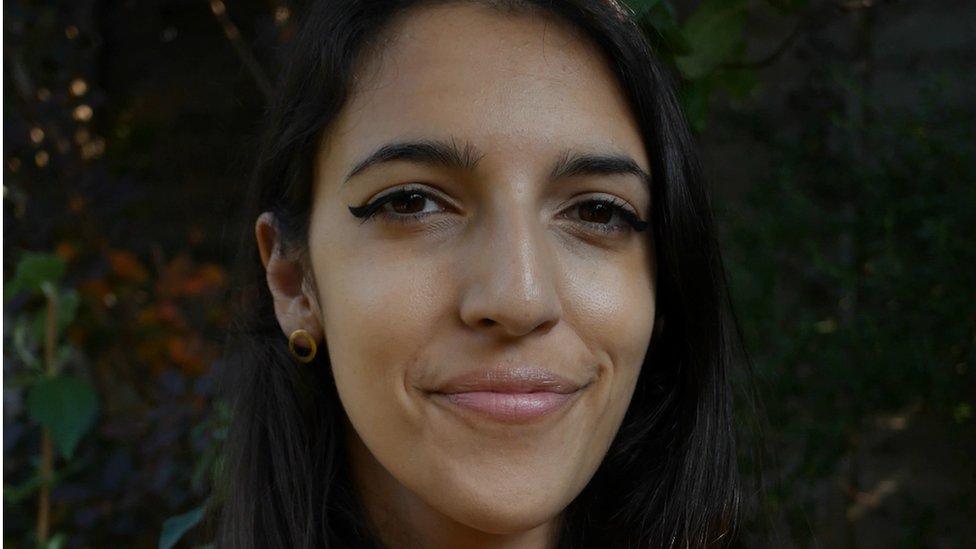
Trail maker Lucy Fulford is also writing a book called The Exiled, which explores Ugandan Asians' migration to Britain
Trail maker and creative designer Lucy Fulford said the trails just "scratch the surface" of the history the people do not realise is on their doorstep.
"It's a great opportunity for older people to engage with technology and young people with history," she said.
For the trail, she highlighted the 50th anniversary of the expulsion of the Asian population in Uganda through the story of the Majothis, owners of Bristol Sweet Mart.
They were exiled from Uganda and resettled in the UK in 1972 and went on to open Bristol Sweet Mart in 1978.
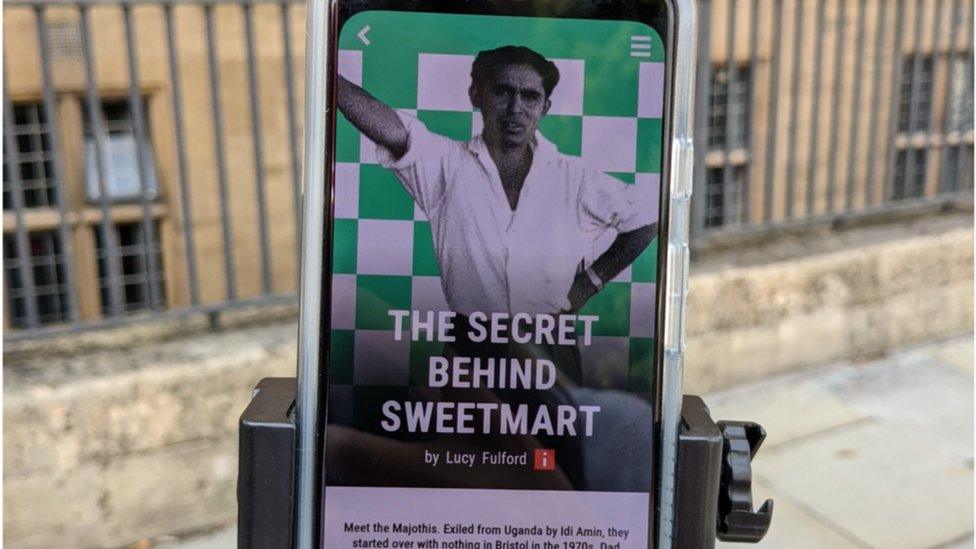
The Majothi family who run Bristol Sweet Mart were amongst 68,000 Ugandan Asians forced to flee the country
"Bristol has done well in covering the Windrush, so I wanted to also bring that piece of history to the trail." She added.
Participants can access support at Bristol Central Library and can follow the trail using the app until February 2023.

Follow BBC West on Facebook, external, Twitter, external and Instagram, external. Send your story ideas to: bristol@bbc.co.uk , external
Related topics
- Published22 August 2022
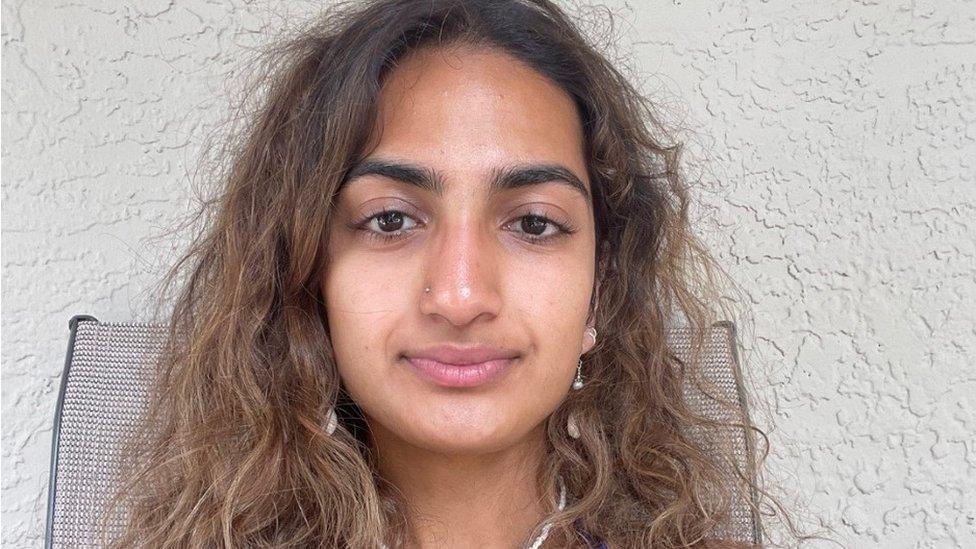
- Published13 April 2022
